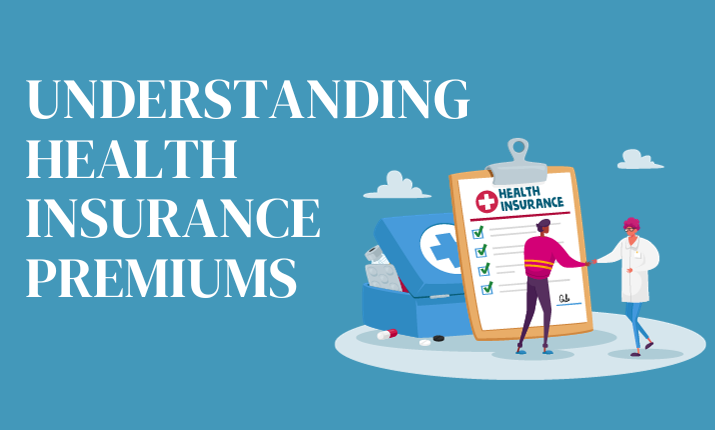Introduction
Health insurance is integral to overall wellness, providing financial security should illness or injury arise. One key component of any health plan is its premium; understanding it is essential for making informed decisions regarding coverage options. This article on health insurance premiums explores its intricacies, possible influencing factors, and how best to navigate them.
Health Insurance Premiums
Health insurance premiums are payments made from individuals or employers to the insurance provider continuously to maintain coverage. It essentially represents the costs associated with owning and administering their policy, typically monthly, with some plans providing alternate schedules of payments.
Factors Affecting Health Insurance Premiums
Numerous factors can affect the cost of health insurance premiums. Some of these could include:
1. Age and Gender Younger individuals often pay lower premiums than their elders, while women may face slightly higher costs due to considerations like maternity coverage.
2. Medical History Preexisting conditions or chronic illnesses can increase premiums significantly.
3. Your Location Premiums may depend on where you reside due to disparate healthcare costs and access.
4. Coverage Level Lower Deductibles Plans that offer more comprehensive coverage at lower deductibles typically carry higher premiums.
5. Smoking Habits Smokers are statistically more likely to need medical assistance, thus increasing premiums.
Types of Health Insurance Premiums
There are various types of health insurance premiums, including:
Individual Premiums
Premiums paid by individuals not covered by employer-sponsored plans.
Employer-Sponsored Premiums
Employers often include premiums in their employees’ benefits package.
Family Premiums
Family premiums cover not only the insured person but also their family.
Group Premiums
Obtained through professional organizations and affiliations.
Appropriate Health Insurance Premium
Selecting an affordable premium requires considering your health needs, budget, and risk tolerance. Finding a balance between affordable monthly payments and adequate coverage is key.
Assess Your Health Needs
Take an in-depth look at your medical history, any current treatments you are receiving, and potential future expenses associated with healthcare costs.
Evaluate Your Budget
Evaluate how much of your monthly income you can allot towards health insurance premiums.
Compare Plans
Review all available plans carefully, paying particular attention to coverage, networks, and out-of-pocket costs.
Seek Professional Advice
Seeking professional advice can provide invaluable insights. An insurance broker or financial advisor may offer valuable insight.
Tips to Lower Health Insurance Premiums
Premiums may be necessary to your finances, but there are ways to lower them and lessen their impact.
Increase Your Deductible
Opting for a higher deductible could help bring down monthly premiums.
Explore Health Savings Accounts
These tax-advantaged savings plans offer tax breaks while helping cover medical costs.
Explore Wellness Programs
Some insurers provide incentives for taking part in health and wellness activities.
Shop Around at Open Enrollment
Comparing plans annually may result in cost savings.
Balancing Premiums and Coverage
Finding the ideal balance between premiums and coverage is vital. Finding an insurance plan that meets all your healthcare needs shouldn’t always mean choosing one with lower premiums – finding it requires planning carefully to see what’s best.
Understanding Deductibles and Copayments
Alongside understanding premiums, knowing your deductibles and copayments is crucial to understanding the total cost of healthcare.
Deductibles
Your deductible is the out-of-pocket expense you must meet before your insurance coverage kicks in.
Copayments
Copayments are fixed sums paid for specific services or medications.
Networks in Health Insurance Premium
Health insurance plans often feature networks of healthcare providers. Staying within this network may help control costs; opting out may result in additional expenses.
Family Plans in Specific Considerations
When selecting a family plan, key aspects such as family members’ number and health needs should be carefully considered.
Premiums vs Out-Of-Pocket Costs
It is vital to understand the difference between premiums and out-of-pocket costs, which include regular payments like premiums; in contrast, out-of-pocket expenses include deductibles, copayments, and coinsurance costs.
Government Programs and Premium Assistance
Government programs like Medicaid and the Children’s Health Insurance Program (CHIP) offer eligible individuals and families financial help with healthcare premiums.
Changes to Premiums Over Time
Your premiums can change over time due to various factors, including health, age, and economic status. Therefore, it’s wise to reevaluate your coverage regularly to ensure it still fits your needs.
Tips for Renewing Your Premiums
Take time during open enrollment periods to review and reevaluate your plan so it fits with your current circumstances. Make any necessary modifications to ensure it matches perfectly with what works for you.
Conclusion
Health insurance premiums is vital to making educated decisions about your healthcare coverage. By understanding which factors affect premiums and knowing how to balance costs against range, you can confidently navigate the complexities of health insurance.
FAQs
Q1: Am I eligible to change my health insurance plan midyear?
Certain life events, like marriage, childbirth, or job loss, may qualify you for a special enrollment period.
Q2: What if I miss the open enrollment period?
If you miss an open enrollment period, the next enrollment period may have to pass before enrollment can be considered, or special enrollment periods may apply depending on circumstances.
Q3: Can I negotiate my health insurance premium?
Unfortunately, premiums cannot be negotiated directly with insurers; however, you can explore various plans until one fits within your budget.
Q4: What is the grace period for premium payments?
The grace period refers to an extended window wherein premium payments may be made after their due dates without incurring penalties and losing coverage.
Q5: Can I change from an individual to a family plan outside the open enrollment period?
In certain instances, such as marriage or having children, certain life events, such as marriage, may allow you to switch from an individual to a family plan outside of this period.

